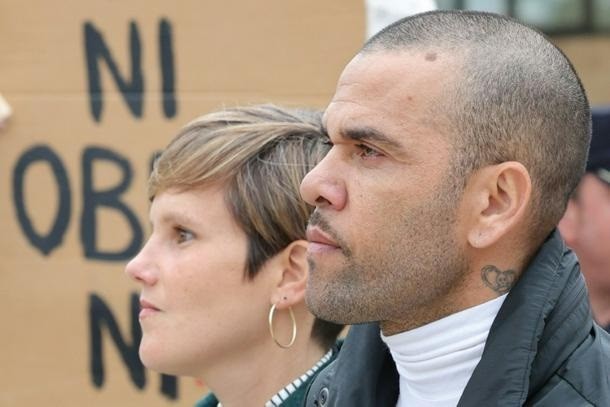
views
Former Brazil international footballer Dani Alves has captured headlines following his release from prison near Barcelona after posting a one-million-euro bail while awaiting the outcome of his appeal in a rape conviction case. The high-profile nature of this case, coupled with the significant sum required for bail, has sparked widespread debate and criticism from various quarters.
Legal Battle and Conditional Release
Alves, a decorated footballer known for his success at clubs like Barcelona, found himself embroiled in a legal saga after being convicted and sentenced to four-and-a-half years in prison for a case involving the alleged rape of a woman in a Barcelona nightclub. Despite the conviction, his legal team swiftly filed an appeal, leading to the court's decision to grant him conditional release upon posting bail, surrendering passports, and adhering to weekly court appearances while remaining in Spain.
Outcry and Criticism
The decision to release Alves on bail has sparked outrage and condemnation from various parties, including prosecutors seeking to double his prison sentence and the victim's lawyer questioning the implications of allowing bail for serious criminal offenses. Critics argue that granting bail in such cases can send a troubling message to society, suggesting that financial means can mitigate the consequences of criminal behavior, especially in cases of violence against women.
Political Response and Ethical Debate
Brazilian President Luiz Inacio Lula da Silva weighed in on the controversy, condemning the court's decision as an injustice and emphasizing the gravity of violence against women. The intersection of wealth, privilege, and justice underscores broader societal concerns regarding accountability, the treatment of survivors of sexual assault, and the ethical considerations surrounding bail conditions in cases of serious criminal offenses.
Legal Proceedings and Public Perception
As Alves navigates the appeals process, the public scrutiny surrounding his case underscores the complexities of high-profile trials, media coverage, and public perception of individuals in the public eye. The contrasting narratives presented by Alves' defense and the prosecution illuminate the challenges of establishing consent, accountability, and justice in cases of sexual violence, raising important questions about legal standards, victim rights, and societal attitudes towards rape culture.

Implications for Justice and Advocacy
The release of Dani Alves on bail raises broader questions about the effectiveness of legal systems in addressing sexual crimes, the impact of privilege and wealth on judicial outcomes, and the importance of ensuring justice for survivors of assault. The case highlights the need for continued advocacy, policy reform, and social change to combat sexual violence, promote survivor-centered approaches, and uphold accountability for perpetrators.
Football Career and Reputational Fallout
Amid the legal turmoil, Dani Alves' reputation as one of football's greatest defenders has faced significant tarnishing, with his dismissal from a Mexican club following his arrest adding further repercussions to his career. The intersection of sports, legal controversies, and public perception underscores the broader implications of off-field behavior on athletes' professional trajectories and public standing.
In conclusion, Dani Alves' release on bail pending appeal in a rape conviction case has reignited discussions about justice, privilege, consent, and accountability in cases of sexual violence. The case serves as a poignant reminder of the challenges inherent in navigating legal systems, confronting societal attitudes towards rape, and advocating for survivor rights. As the legal proceedings unfold and public discourse continues, the implications of Alves' case resonate far beyond the realm of sports, prompting critical reflections on the intersections of power, privilege, and justice in addressing crimes of sexual nature.












Comments
0 comment